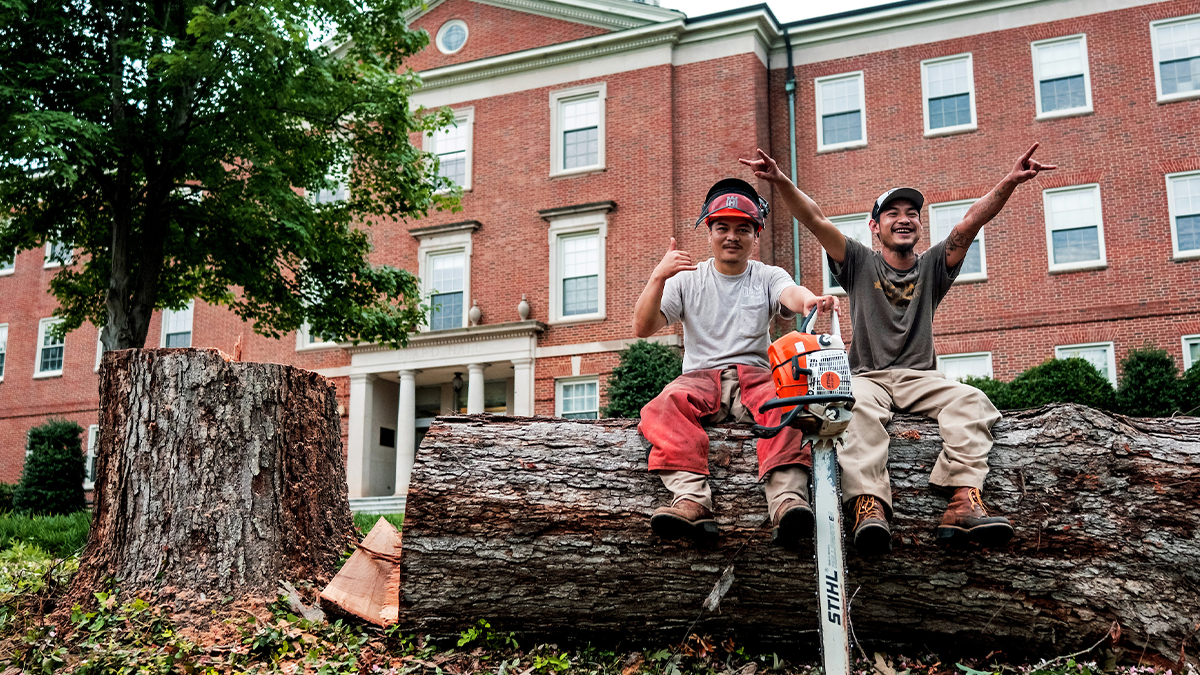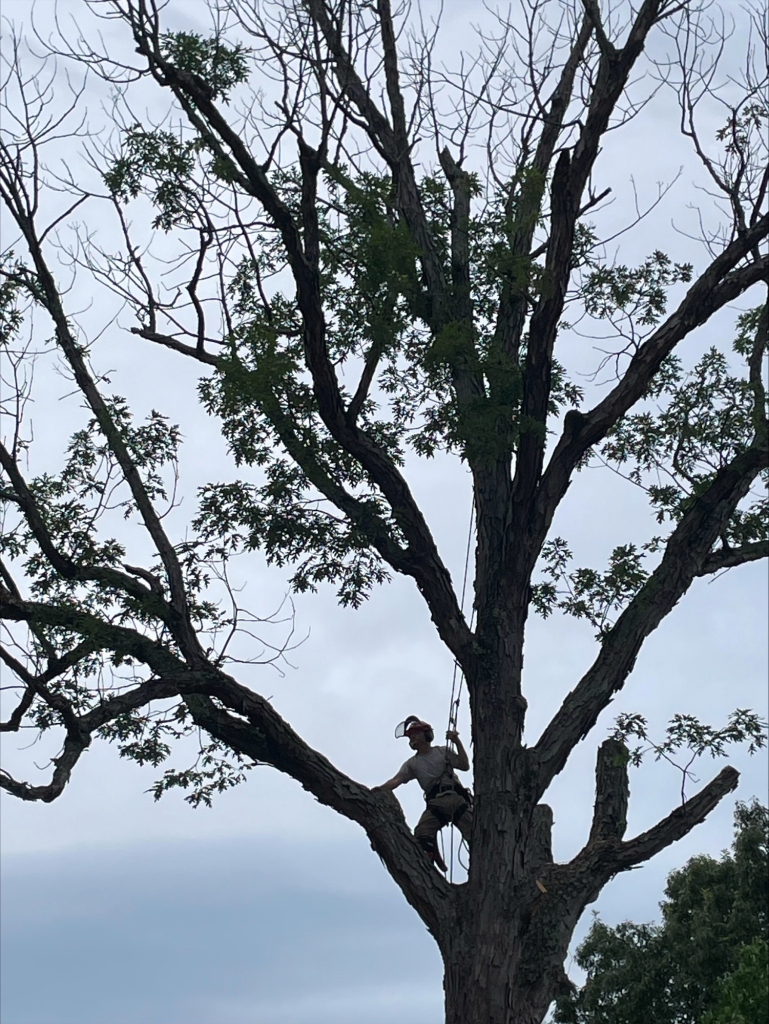Karen refugees find home at Carolina
After “running from war” in Myanmar as children, Bleh Po and Kyaw Po now work on a Grounds Services tree crew.

Bleh Po’s and Kyaw Po’s work in Carolina’s treetops may seem precarious.
Just about every day, they climb trees that need pruning then hew the trunks into sections. Co-workers on the ground use ropes, sometimes a grapple truck, to pull away what the two cut. Then they descend to the ground to saw through stumps that often weigh tons.
Safety is a priority for the two, who work on a Grounds Services tree crew, along with Htoo Pee, who handles the ropes from the ground.
Refugee journey
Their lives are comfortable now, but that hasn’t always been the case. As young children, both Bleh Po and Kyaw Po fled homes in Myanmar for Thailand. Each had a similar experience. With hundreds of others, they spent a month walking to the border. There, Thai officials assigned them to refugee camps.
“All of us were running from the war back home,” Kyaw Po said recently.
The two are among more than 90,000 Karen refugees who have lived in camps that rely on relief agencies for support, according to the United Nations Refugee Agency. They could not leave the camp to find work and had to wait as Thai officials decided who could leave the country.
“You live a day at a time. You don’t know what’s coming tomorrow,” Bleh Po said.

Bleh Po (pictured) and other members of the Grounds Services tree crew keep people on campus safe from dead limbs and other potential hazards. (Photo courtesy of Tom Bythell)
Kyaw Po arrived in the U.S. in 2010 at age 19. He lived in Oregon before working for an Alaskan fishery for a few months, then moved to High Point, North Carolina, and on to Chapel Hill. He lives here with his wife, two children and his parents.
After 19 years in a camp, Bleh Po was allowed to travel to the U.S. in 2014 with his brother-in-law and sister-in-law. He was 20. Po lives in Snow Camp, North Carolina, with his wife, three children and his in-laws. His parents live in Myanmar.
Stable work, stable lives
The men were working for a local tree care company two years ago when friends told them about the job openings at Carolina.
After some training, the two fit right into the tree crew, said University Arborist Tom Bythell.
The crew likes to joke around and enjoys working together. When it’s time to get serious, they focus on a tree, assess it for disease, inspect the branches and plan their work. They look at the surrounding buildings, walkways and plants. They decide where to position ropes, how to lower limbs and, if they must cut down a tree, where to drop it. Then they each don a hard hat, eye shield, earplugs and a climbing harness called a “saddle” to which they can attach a few tools, such a small handsaw and a special saw for cutting branches.
On the ground, they often use a chainsaw that is almost as long as they are tall.
To them, the job is mostly about keeping people on campus safe from dead limbs that might fall and trimming trees to allow for streetlights and lamp posts to illuminate campus areas. They also understand how important trees are to the University.
The two are part of a local Karen community that shares a familiar culture, and they continue to learn English and about life in the U.S.
“As Karen people, we grew up with nothing,” Bleh Po said. “When we come to America, it’s to build up a whole new life, to work and find education, to be better every day.”







